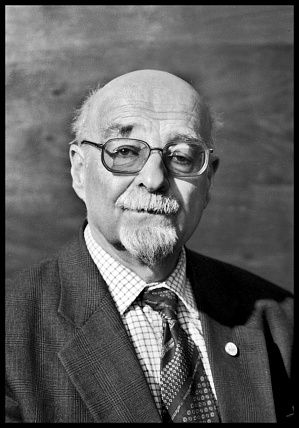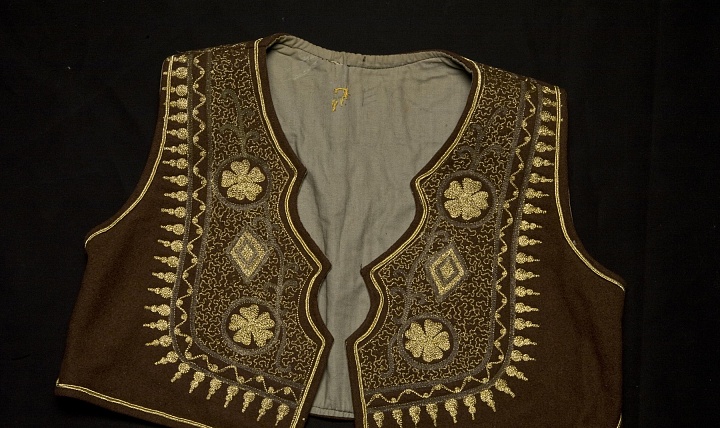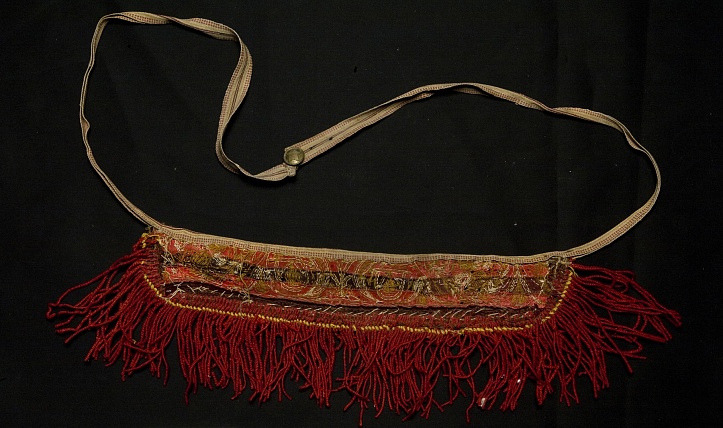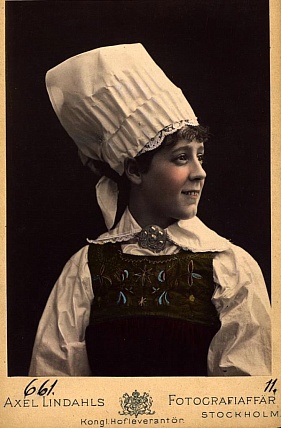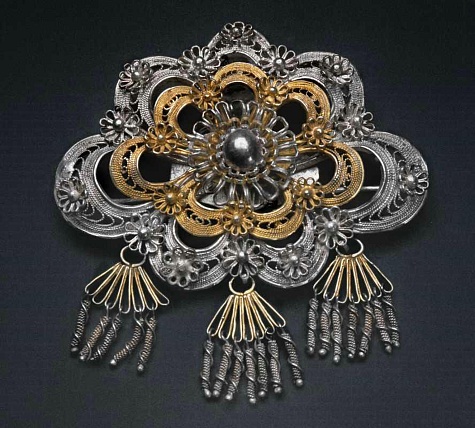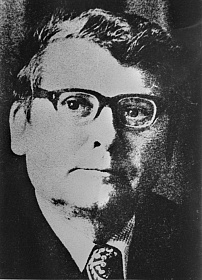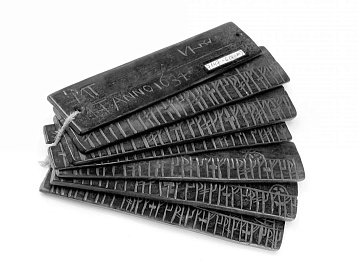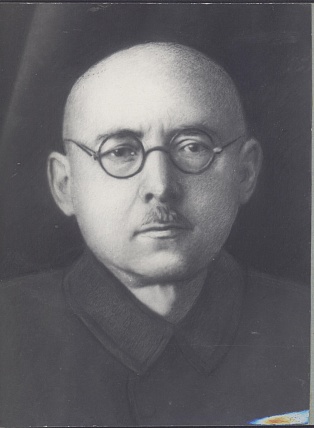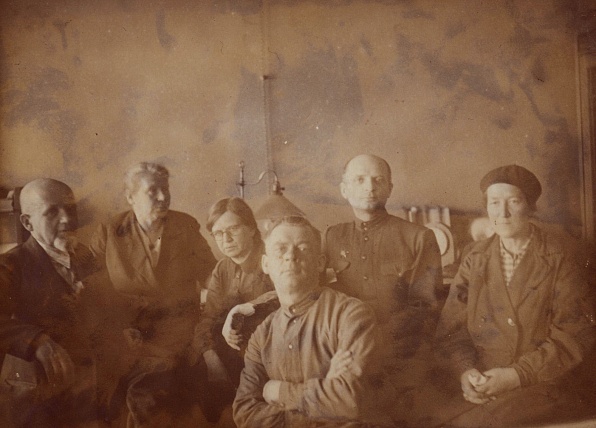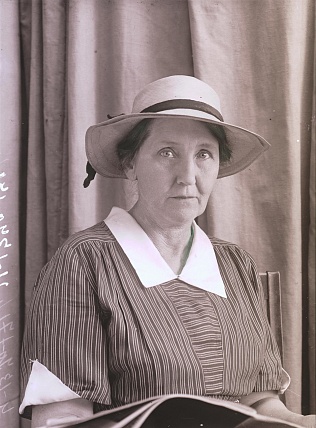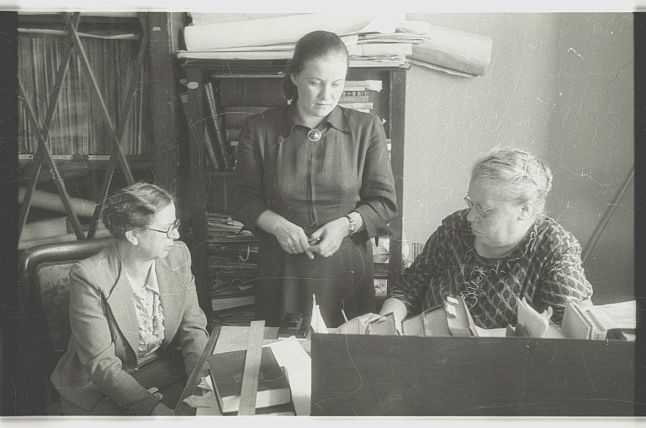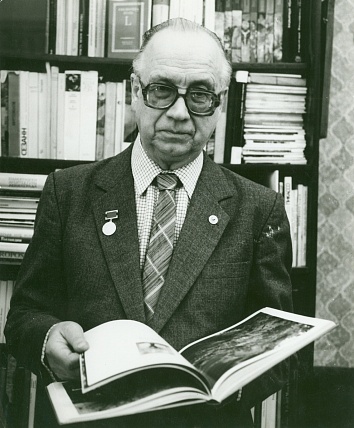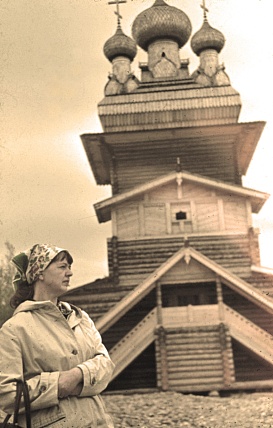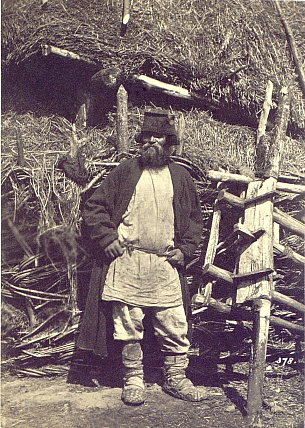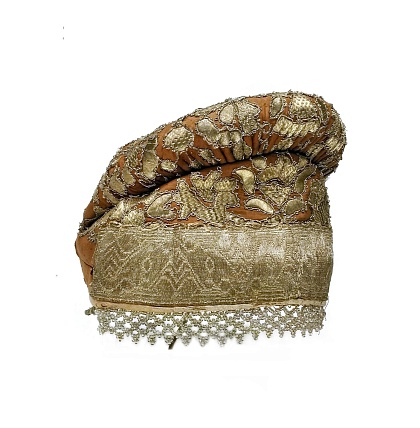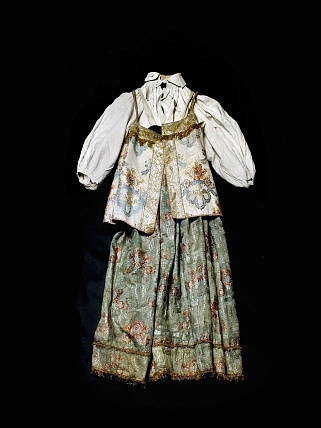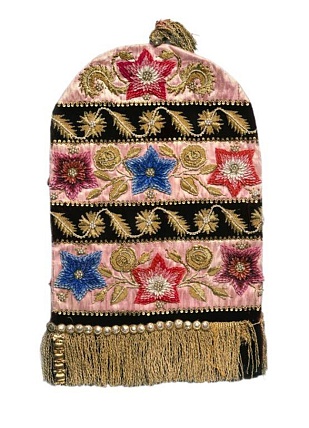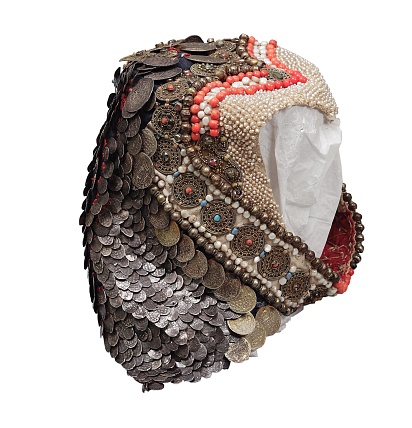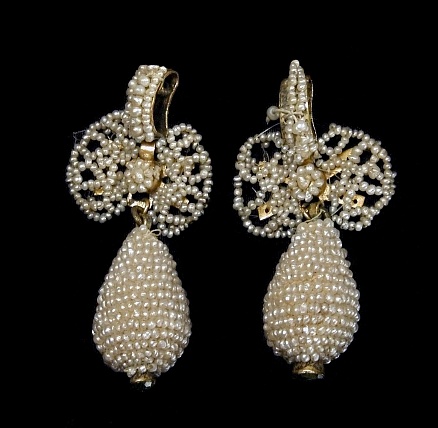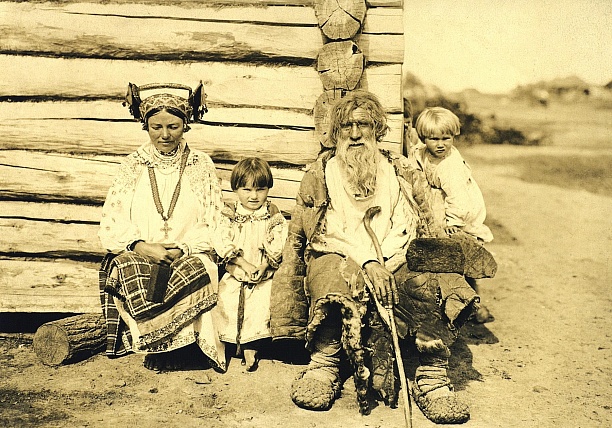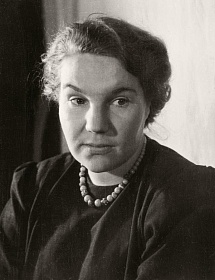- Administration
- Research Departments
- Department of Australia, Oceania and Indonesia
- Department of America
- Department of Physical Anthropology
- Department of Archeology
- Department of Africa
- Department of East and Southeast Asia
- Department of Caucasus
- Department of Siberia
- Department of Central Asia
- Department of South and Southwest Asia
- Department of the History of Kunstkamera and 18th-century Russian Science (M.V. Lomonosov museum)
- Laboratory "The International Center of Islamic Studies"
- Arctic Research Center
- Laboratory of Museum Technologies
- Europe Research Center
- Management and Museum Services
Europe Research Center
Contact Information
Phone: +7 (812) 328-41-41, ext. 108
E-mail: europe@kunstkamera.ru
Department Staff
Alexander NOVIK, Candidate of Sciences, Head of the Department (cultural and social anthropology, ethnology of Europe, traditional culture of the Balkan Peninsula peoples, traditional culture of Eurasia, contact zones of Eurasia, ethnolinguistics, ethopsychology, ethnoetiquette, mythology, folk medicine and healership, history of costumes, traditional crafts, arts and crafts).
Yuliya IVANOVA-BUCHATSKAYA, Candidate of Sciences, senior researcher (festive practices and objects/attributes in museum collections, urban studies, occupational cultures).
Alexander FINCHENKO, Candidate of Sciences, chief specialist (ethnography and folklore of the Russian North, muzzle-loading firearms, visual anthropology, ethnic museology)
Natalia GOLANT, Candidate of Sciences, researcher (ethnography of the Carpathian-Balkan region, traditional culture of the Eastern Latin peoples, calendar rites, mythology beliefs, ethnolinguistics).
Ilya GUBANOV, Candidate of Sciences, senior researcher (history of Ancient Scandinavian culture and society, Icelandic family sagas, Beowulf, Old English epic, culture of informal communities (Hippies etc.) from the 1960s up to now).
Lyudmila LAVRENTIEVA, Candidate of Sciences, senior researcher (history of the MAE, collectors, Russian and Slavic culture, thing and culture, ethnic museology)
Julietta MESKHIDZE, Candidate of Sciences, researcher (ethnic culture of Southeast Europe, history and culture of the Basques, ethnopolitical history of the Caucasus, European-Caucasian relations).
Natalia MAZALOVA, Candidate of Sciences, senior researcher (Russian ethnography, folk medicine, somatic ethnography, magic practices of Russian “Wise Ones,” ethnography of St. Petersburg)
Anton SALMIN, Doctor of Sciences, lead researcher (ethnography, folklore, and folk religion of the Chuvashes and Turkic-speaking peoples of the Volga region)
Tatiana SCHEPANSKAYA, Candidate of Sciences, lead researcher (ethnography of the Russians, field research methods, gender studies: ethnography of maternity, stereotypes of masculinity, men’s traditions and magic; political anthropology: traditional models and symbols of power; anthropology of violence, ethnography of professional communities, youth subculture)
Alexander TERYUKOV, Candidate of Sciences, senior researcher (ethnography of the Komi peoples and other Finno-Ugric peoples, history of Russian and Finno-Ugric ethnography, history of the MAE, ethnic museology)
Tatiana YAKOVLEVA, research assistant (history of the Department, history of the Department’s collections)
History of the Department
The Department of Europe of the MAE RAS was established in the early 1990s on the basis of the General Issues Sector. The Department owes its existence to the initiative of Professor A. S. Mylnikov, Honored Scientist of the RF, who was Director of the MAE RAS at that time, and B. N. Putilov, Doctor of Sciences, an outstanding folklore researcher. Under the leadership of A. S. Mylnikov whose research interests covered a widest range of studies of European peoples, the Department functioned until his death early in 2003.
Essential Topics of Research
The main lines of the Department’s activity are the studies of the traditional culture of peoples of Scandinavia and Central Europe, the Balkans and the Slav area, Southern and Southeast Europe, Black SeaLand, and AzovLand.
In 2017–2019, the researchers of the Department of Europe contribute are working on the collective topic “Ethnocultural processes in today’s Europe and the Museum: Neighborhoods, Diasporas, and Migrations” (supervisor: A. A. Novik, Candidate of Sciences) as part of the research effort “History of the MAE RAS and its collections in the context of development of human science” (supervisor: Yu. K. Chistov, Doctor of Sciences), and contribute to the projects “Illustrative collections of the Kunstkamera” (supervisor: V. A. Prischepova, Candidate of Sciences) and “Inter-civilization interaction, ethnic history and diversity of the cultural heritage of the world’s Islamic nations in historical dynamics” (supervisor: Ye. A. Rezvan, Doctor of Sciences).
The Department’s researchers have contributed to the program of the language and literature section, History and Philology Division of the RAS “Language and literature in the context of cultural dynamics” (project “Carpathian and Balkan territorial dialects: Reconstruction of traditional culture using language data,” 2012–2014, N. G. Golant), grants of the Russian Human Science Foundation (project “Albanians in Ukraine: The Revived Past. Archiving and attribution of the photo illustration collections of the IEA RAS,” 2012, A. A. Novik, D. S. Yermolin; project “Contact zones of Russia, Ukraine, Moldova, and Romania: Language and ethnocultural situation under transformation,” 2012–2014, A. A. Novik, D. S. Yermolin; project “Bulgarians of Moldova, Ukraine, and Russia. Experience of life in diaspora,” 2015–2017, N. G. Golant), scholarship fund of the Parliament of Berlin / Studienstiftung des Abgeordnetenhauses von Berlin (2012–2013, Yu. V. Buchatskaya) etc.
Essential Publications
The Department’s researchers have published the following monographs and multi-author collections of articles:
- Aspekty buduschego po entograficheskim i folklornym materialam [sbornik nauchnykh statei] [Aspects of the future according to ethnographical and folklore materials [a collection of scientific articles]] / Peter the Great Museum of Anthropology and Ethnography (Kunstkamera), Russian Academy of Sciences; [Publication editor: T. B. Schepanskaya]. — St. Petersburg: MAE RAN, 2012, 356 pp., ill.
- Kon’kova O. I. Etnograficheskiy atlas Leningradskoi oblasti. Albom [Ethnographical atlas of Leningrad Oblast. Album] / [Glinka N. V., Candidate of Sciences; Guzenkova T. S., Doctor of Sciences; Kon’kova O. I. et al. ]. St. Petersburg, 2015, 296 pp.
- Mazalova N. Ye. Lichnost russkogo “znayuschego”: etnograficheskiye aspekty issledovaniya ]Personality of a Russian “Wise One”: Ethnographical aspects of research]. St. Petersburg, Peterburgskoye vostokovedeniye, 2011.
- Melnikova Ye. A. “Voobrazhaemaya kniga”: ocherki po istorii folklora o knigakh i chtenii v Rossii [“An “imaginary book”: Essays of the history of folklore on books and reading in Russia]. St. Petersburg: Izd-vo Evropeiskogo un-ta v S.-Peterburge, 2011, 182 pp. (Studia Ethnologica. Issue 8).
- Salmin A. K. Prazdniki, obryady i verovaniya chuvashskogo naroda [Feasts, rites, and beliefs of the Chuvash people]. Cheboksary: Chuvash Book Publishers, 2016, 688 pp.
- Salmin A. K. Traditsionnye obryady i verovaniya chuvashei [Traditional rites and beliefs of the Chuvash people] / Scientific editor: I. M. Steblin-Kamensky, Member of the RAS. – St. Petersburg: Nauka, 2010, 240 pp.
- Salmin A. K. Encyclopedia of Chuvash Folk Rites and Beliefs. Lewiston: The Edwin Mellen Press, 2011. – 408 p.
- Salmin A. K. (under editing) Traditsionnaya kultura chuvashei. Teksty. Materialy nauchnogo arkhiva Chuvashskogo gosudarstvennogo instituta gumanitarnykh nauk [Traditional Chuvash culture. Texts. Materals of the research archive of the Chuvash State Institute of Humanities]. St. Petersburg: Faculty of Philology, St. Petersburg University, 2014, 368 pp.
- Teryukov A. I. Istoriya etnograficheskogo izucheniya narodov komi. Monografiya [History of ethnographical study of the Komi peoples. A mongraph]. MAE RAN. Lema Press, St. Petersburg, 2011, 514 pp.
- “Uvedi menya, doroga”: sbornik statei pamyati T. A. Bernshtam [Lead me away, my road: A collection of articles in memory of T. A. Bernshtam] / Peter the Great Museum of Anthropology and Ethnography (Kunstkamera), Russian Academy of Sciences [ed. by N. Ye. Mazalova et al.]. – St. Petersburg: MAE RAN, 2010, 457 pp., [6] ill. plates, portrait: ill., image.
- Folklor i etnografiya. K devyanostoletiyu so dnya rozhdeniya K. V. Chistova: [sbornik nauchnykh statei] [Folklore and ethnography. For the 90th anniversary of K. V. Chistov [a collection of scientific articles]] / Peter the Great Museum of Anthropology and Ethnography (Kunstkamera), Russian Academy of Sciences; [Publication editors: A. K. Baiburin, T. B. Schepanskaya]. – St. Petersburg: MAE RAN, 2011, 315 pp., illustrations.
- Schevchenko Yu. Yu. Khristianskiye peschernye svyatyni. T. 2: Peschernye svyatyni khristianskoi Rusi: genesis, funktsionirovaniye, contekst [Christian cave holy places. Vol. 2: Cave holy places of the Christian Russia] / Publication editor: K. V. Chistov, Associate Member of the RAS. St. Petersburg: Nauka, 2010, 640 pp., 248 ill. ISBN 978-5-02-025544-9 (Vol. 2)
- Schepanskaya T. D. Sravnitelnaya etnografiya professiy: povsednevnye praktiki i kulturnye kody (Rossiya, konets XIX – nachalo XXI v.) [Comparative ethnography of occupations: Everyday practices and cultural codes (Russia, late 19th – early 21st century] / T. B. Schepanskaya; Peter the Great Museum Anthropology and Ethnography (Kunstkamera, Russian Academy of Sciences. – St. Petersburg: Nauka, 2010, 338 pp.
Popular science publications:
- Kon’kova O. I., Romanova N. Ye. Izhorskaya traditsionnaya kukla [Traditional Ingrian dolls]. 2nd edition, extended and amended. St. Petersburg, 2011, 80 pp., col. ill.
- Kon’kova O. I. (jointly with L. S. Lavrentieva and L. A. Saksa) Korennye narody Leningradskoi oblasti (informatsionno-spravochnoye izdaniye dlya detei) [Indigenous peoples of Leningrad Oblast (information and reference book for children)]. St. Petersburg, 2014, MAE RAN, 84 pp.
- Kon’kova O. I. Inkeroin keel. Uchebnoye posobiye po izhorskomu yazyku [Ingrian language learning guide]. St. Petersburg, 2014, MAE RAN, 84 pp.
- Kon’kova O. I. Vad’d’a ceeli. Uchebnoye posobiye po vodskomu yazyku [Votic language learning guide]. St. Petersburg, 2014, MAE RAN, 84 pp.
- Kon’kova O. I. Izhora. Ocherki istorii I kultury [Izhora. History and culture: Essays]. 3rd edition, extended and amended. St. Petersburg, 2013, 252 pp.
- Kon’kova O. I. Izhorskaya traditsionnaya kukla (sovmestno s N. Ye. Romanovoi) [Traditional Ingrian dolls (jointly with N. Ye. Romanova)]. 3rd edition, extended and amended. St. Petersburg, 2013, 64 pp., col. ill.
- Kon’kova O. I. Traditsionnye prazdniki narodov Ingermanlandii [Traditional feasts of the peoples of Ingria]. St. Petersburg, 2011, 340 pp.
- Kon’kova O. I. Uchebnoye posobiye po vodskomu i izhorskomu yazyku [Votic and Ingrian language learning guide]. St. Petersburg, 2015. A. S. Pushkin Leningrad Oblast University Press, 108 pp.
- Kon’kova O. I., Romanova N. Ye. Vodskaya traditsionnaya kukla [Traditional Votic dolls]. 2nd edition, extended and amended. St. Petersburg, 2011, 80 pp, col. ill.
- Schrader, Tatiana. Legislative Aspects of the Norwegian Colonization of Murman (1860-1915) // In the North my Nest is made. Studies in the History of the Murman Colonization 1860-1940. St. Petersburg - Tromsö, 2006. P. 61-85.
- Novik Alexander, Sobolev Andrey. The Traditional Wedding Costume of the Mrkovići in Montenegro: between Real Heritage and Folk Construction (Materials of the Russian Expeditions in 2012-2014) // Folklore. Electronic Journal of Folklore. Vol. 66 [Электронный ресурс]. Режим доступа: https://www.folklore.ee/folklore/vol66/novik_sobolev.pdf (https://doi.org/10.7592/FEJF2016.66.novik_sobolev). 22 p. (Дата обращения: 22.01.2017).
- Buchatskaya Yu. V. Natsiya i identichnosti v Germanii: regionalism / natsionalism / stili zhizni [Nation and identities in Germany: Regionalism / Nationalism / Lifestyles] // Kulturnayaslozhnostsovremennykhnatsiy / Publication editor: V. A. Tishkov, Ye. I. Filippova; Miklouho-Maclay Institute of Ethnology and Anthropology of the RAS. – Moscow: Politicheskaya entsiklopediya, 2016. – 384 pp.: ill. Pp. 115-132.
- Golant N. G. Martovskaya starukha i martovskaya nit. Legendy i obryady nachala marta u rumyn [Granny March and the March thread. Romanian legends and rites of early March]. St. Petersburg: MAE RAN, 2013, 284 pp.
- Golant N. G. Obryady vesenne-letnego tsikla v Valakhii: Ocherki traditsionnoi kultury [Spring and summer rites in Wallachia: Essays on traditional culture]. Moscow, St. Petersburg: Institute of Slavic Studies of the RAS, MAE RAN, 2014, 222 pp.
- Golant N. G. Materialy po kalendarnoi obryadnosti rumyn (vlakhov) doliny Timoka. Zimnyaya obryadnost. [Materials on calendar rites of the Romanians (Vlachs) of the TimokValley. Winter rites] // Karpato-balkanskiy dialektnyi landshaft: Yazyk i kultura. 2012–2014. Issue 3. Moscow, Institute of Slavic Studies of the RAS, 2014, pp. 223–238.
- Gollobordë, Albaniya. Iz materialov balkanskoi ekspeditsii RAN i SPbGU 2008-2010 gg. [Gollobordë, Albania. From the materials of the Balkan expedition of the RAS and St. PetersburgUniversity in 2008-2010] / Ed. by Andrei N. Sobolev and Alexander A. Novik // Materialien zum Südosteuropasprachatlas / Herausgegeben von Helmut Schaller und Andrej Sobolev. Band 6. – St. Petersburg: Nauka; München: Verlag Otto Sagner, 2013. 272 pp.; ill. [19.1 published sheets]. ISBN 978-5-02-038322-7 (“Nauka”); ISBN 978-3-86688-224-9 (Verlag Otto Sagner).
- Gubanov I. B. Kultura i obschestvo skandinavov epokhi vikingov [Scandinavian culture and society of the Viking era] St. Petersburg: St. Petersburg University Press, 2004, 142 pp.
- Gubanov I. B. Bronzovyi vek Severa i Yuga Yevropy: problemy mezhetnicheskikh kontaktov i rekonstruktsiya sotsialnoi struktury drevnego obschestva [Bronze Age of the north and south of Europe: Issues of inter-ethnic contacts and reconstruction of the social structure of ancient society]. St. Petersburg: Nauka, 2006, 106 pp.
- Gubanov I. B. Islandskiye rodovye sagi kak istochnik po istorii kultury i obschestva Drevnei Skandinavii. Issledovaniye, teksty i perevody [Icelandic favily sagas as a source for the history of culture and society in Ancient Scandinavia. Research, texts, and translations] St. Petersburg: MAE RAN, 2016, 230 pp.
- Daudov A. H., Meskhidze D. I. Natsionalnaya gosudarstvennost gorskikh narodov Severnogo Kavkaza (1917-1924 g.) [National state formation of the North Caucasian peoples (1917-1924]. St. Petersburg: St. PetersburgUniversity, 2009, 222 pp.
- Yevropeiskoye kulturnoye prostranstvo v kollektsiyakh MAE (Sbornik MAE. T. LVIII) [European cultural space in the MAE collections (MAE Collected Works, vol. LVIII] / Publication editor: A. A. Novik. – St. Petersburg: MAE RAN, 2013, 469 pp. + CD. [48 published sheets]. ISBN 978-5-88431-228-9.
- Ivanova-Buchatskaya Yu. V. Plattes Land: Simvoly Severnoi Germanii. Slavyano-germanskiy etnokulturnyi sintez v mezhdurechye Elby i Odera [Plattes Land: Symbols of North Germany. Slav-German ethnocultural synthesis in the Elbe-Oder interfluve]. St. Petersburg: Nauka, 2006, 224 pp.
- Ivanova-Buchanskaya Yu. V., Alekseeva I. S. Kontrastnaya toponimika: Nemetsko-russkiy i russko-nemetskiy slovar-spravochnik dlya perevodchikov [Contrast toponymy: German-Russian and Russian German glossary for translators]. St. Petersburg: Soyuz, 2006, 112 pp.
- Kulturnoye naslediye narodov Yevropy. (Sbornik MAE. T. LVII) [Cultural heritage of European peoples. (Mae Collected Works, Vol. LVII) / Publication editor: A. A. Novik. – St. Petersburg: Nauka, 2011, 308 pp. + CD. [30 published sheets]. ISBN 978-5-02-038267-1
- MeskhidzeD.I. Italyanskaya interventsiya v Gruziyu v 1919 godu: plany i obstoyatelstva [Italian intervention in Georgia in 1919: Plans and circumstances] // VestnikSankt-PeterburgskogoUniversiteta. Seriya 2. Istoriya. 2007. Issue 1, pp. 127-133.
- Mylnikov A. S., Ivanova-Buchatskaya Yu. V., Novik A. A. V lesakh Severnoi Germanii: Po sledam ischeznuvshikh slavyan: Polnoye sobraniye materialov Pervoi Rossiysko-germanskoi etnologicheskoi ekspeditsii v Severnuyu Germaniyu 2000 g. [In the woods of North Germany: On the trail of vanished Slavs: Complete materials of the First Russian-German Ethnological Expedition to North Germany in 2000]: In 2 volumes. St. Petersburg: Nauka, 2009, Vol. I. 604 pp.; илл. [38 published sheets]. ISBN 978-5-02-025584-5
- Mylnikov A. S., Ivanova-Buchatskaya Yu. V., Novik A. A. V lesakh Severnoi Germanii: Po sledam ischeznuvshikh slavyan: Polnoye sobraniye materialov Pervoi Rossiysko-germanskoi etnologicheskoi ekspeditsii v Severnuyu Germaniyu 2000 g. [In the woods of North Germany: On the trail of vanished Slavs: Complete materials of the First Russian-German Ethnological Expedition to North Germany in 2000]: In 2 volumes. St. Petersburg: Nauka, 2010. Vol. II. 510 pp.; ill. + CD. [32 published sheets]. ISBN 978-5-02-025604-0
- Novik A. A. Greki [Greeks] // Bolshaya Rossiyskaya entsiklopediya: V 30 t. / Chairman, Academic Editorial Board: Yu. S. Osipov. Publication editor: S. L. Kravets. Vol. 7. – Moscow: Bolshaya Rossiyskaya entsiklopediya, 2007, pp. 665-667.
- Novik A. A., Buchatskaya Yu. V., Yermolin D. S., Dugushina A. S., Morozova M. S. “Priazovskiy otryad”. Yazyk i kultura albantsev Ukrainy [“The Azov Detachment.” Language and culture of the Albanians in Ukraine / Publication editor: A. A. Novik. – St. Petersburg: MAE RAN, 2016. Part I, vol. 1. 912 pp. [73 published sheets.]. ISBN 978-5-88431-313-2
- Novik A. A., Buchatskaya Yu. V., Yermolin D. S., Dugushina A. S., Morozova M. S. “Priazovskiy otryad”. Yazyk i kultura albantsev Ukrainy [“The Azov Detachment.” Language and culture of the Albanians in Ukraine / Publication editor: A. A. Novik. – St. Petersburg: MAE RAN, 2016. Part I, vol. 2. 672 pp. [54 published sheets]. ISBN 978-5-88431-319-4
- Sidorov S. I., Stojković D., Voronina I. I., Girfanova A. H., Kalinin S. A. Novik A. A. Anglo-serbsko-albanskiy razgovornik dlya sotrudnikov Rossiyskogo kontingenta mezhdunarodnoi politsii OON v Kosovo. [English-Serbian-Albanian Phrasebook for the Russian Police Contingent] / Compiled by S. I. Sidorov. General editorship: A. V. Didenko. – Peć [Kosovo]: United Nations Mission in Kosovo; Dukacini, 2004, 29 pp.
- Schrader T. A. Ocherki zhizni shvedskikh kolonistov v Rossii (XIX v.) [Overview of the life of Swedish settlers in Russia (19th century)] // Skandinavskiye chyeniya 2006. Etnographicheskiyeikulturnyeaspekty/ Publication editor: T. A. Schrader. – St. Petersburg: Lema, 2008, pp. 229-253.
